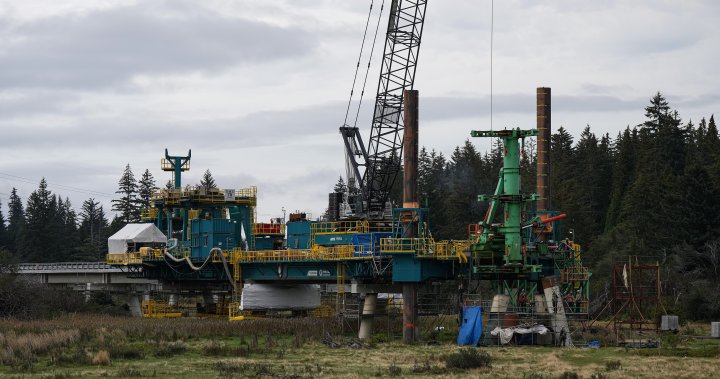Persistent drought conditions in Western Canada are posing a significant challenge for natural gas producers as they prepare for the opening of Canada’s first liquefied natural gas export terminal. The region is currently experiencing extreme drought conditions, particularly in northeast B.C. and northwest Alberta, which are key areas for natural gas drilling. Alberta has already established a drought advisory panel to address water usage negotiations, while B.C. Premier David Eby has described the situation as the most dramatic drought conditions ever seen. Water is crucial for the natural gas industry, especially for hydraulic fracturing, which involves using water, sand, and chemicals to extract gas.
The anticipated opening of the $40 billion LNG Canada project is expected to bring increased demand for natural gas, but the industry is now facing additional complications due to the ongoing drought conditions. Much of the $5 billion in projected capital spending in B.C. by oil and gas producers in 2024 will be driven by natural gas drilling to supply the LNG Canada facility. While companies are committed to meeting the requirements of the LNG project, they may face challenges and additional costs related to water management, according to Andrew Botterill, national oil, gas, and chemicals leader at Deloitte Canada.
The Alberta Energy Regulator has warned the oil and gas industry about the potential for restricted access to water during severe droughts in 2024. The provincial government is currently in negotiations with major users to reach water-sharing agreements. Similarly, the B.C. Energy Regulator has provided advance notice of possible water restrictions for industrial water license holders in case conditions worsen. As restrictions are implemented, gas developers will need to explore alternative water sources, such as recycled water, which is more expensive and technically complex than using fresh water. In 2022, only slightly over one percent of water used in hydraulic fracturing operations in Alberta was recycled water.
Despite the challenges posed by the drought conditions, companies are expected to manage and adapt, albeit with additional expenses and operational complications. As water restrictions become more stringent, gas developers will need to invest more time and resources into exploring alternative water sources and implementing more sustainable water management practices. This shift towards more sustainable practices not only addresses immediate challenges but also ensures the long-term viability and resilience of the natural gas industry in Western Canada. Adjustments to water management strategies will be crucial for the industry to navigate the ongoing drought conditions and meet the demands of the LNG Canada project.


